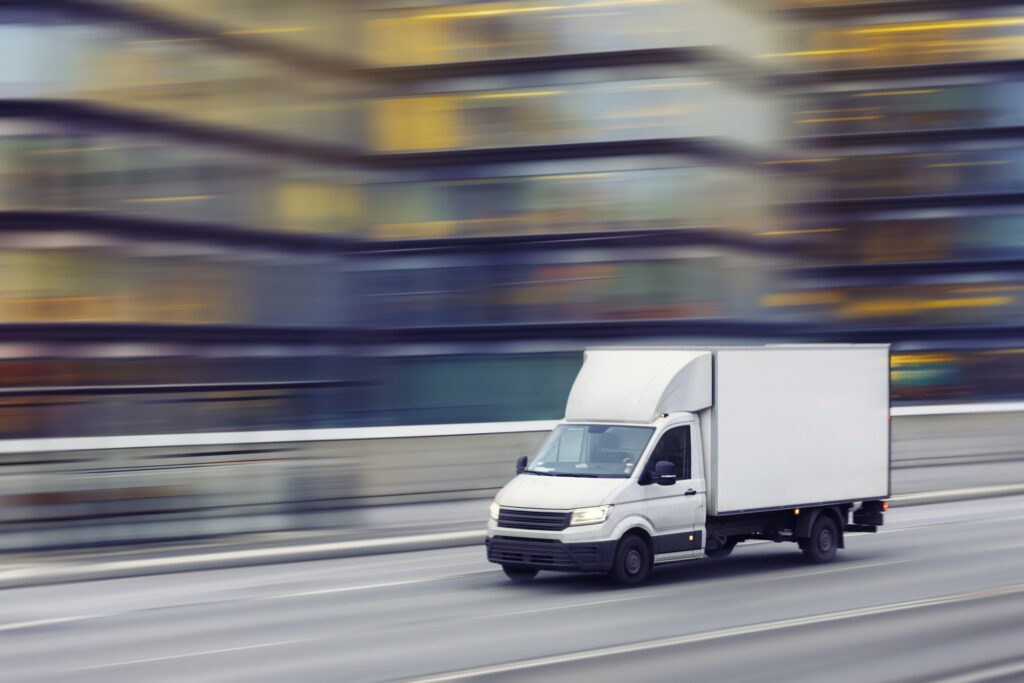Diesel dominates as EU commercial vehicle market grows again
31 July 2023

The EU saw sales of commercial vehicles rise across all categories in the first half of the year, as the market continued its recovery following supply-chain struggles.
Figures released by the European Automobile Manufacturers’ Association (ACEA) show that between January and June, sales of light-commercial vehicles (LCVs) under 3.5 tonnes increased by 11.2% to 730,969 units. This was driven across the EU by substantial improvements in the Spanish and German markets, which ended the period up 16.6% and 15.5% respectively. Sales in France also encouraged EU growth, increasing by a moderate 3.6%.
Medium trucks, between 3.5 and 16 tonnes, recorded a significant increase of 20%, totalling 179,508 units in the first half of the year. Almost all EU markets saw double-digit percentage gains, including the four largest: Germany (up 24.8%), France (up 12.3%), Italy (up 12.6%), and Poland (up 10.8%).
Electric starts to take market share
Electric vehicle (EV) and hybrid technology began eroding the dominance of diesel in the LCV market; however, it is doing so slowly. While in 2018, 92.9% of LCVs sold in the EU were powered by diesel, this dropped slightly to 87.2% by the end of 2022. So far this year, diesel makes up 83.5% of the market.
ACEA does not break down battery-electric vehicle and plug-in hybrid (PHEV) numbers under its heading of EVs, making it difficult to determine how many vans sold in the EU were all-electric. PHEVs are likely to be more appealing to operators, as they can use an internal-combustion engine for longer runs, while switching to electric power for urban settings.
A total of 50,708 EV-based LCVs were registered in the first half of 2023, an increase of 100.4% over the same period last year. This equates to a 6.9% market share, up 3% over the first six months of 2022. The market is therefore growing slowly, with this share also up on the 5.3% recorded across the whole of last year. In the medium truck market, EV sales increased 409.9%, equating to 1,285 units across the EU. This makes up a 5% market share, up from 1.2% in the first half of 2022.
Diesel saw a rise of 6.6% in the first half of the year, with 610,391 LCV registrations, helped by a 24.9% increase in Spain, and a 14.4% rise in Italy. However, France saw diesel registrations decrease by 6.7%, with around 10,000 fewer deliveries in the country, which was mirrored by the gain enjoyed by both EVs and hybrids. In the medium truck market, diesel registrations increased 20.9%, with the fuel type holding a commanding 91.4% market share, although this is down 5.3% compared with the same period in 2022.
Petrol is the less-popular fuel type of choice in the commercial vehicle market. However, LCV registrations increased 30% between January and June, with a market share of 6%. In the medium truck market, a 22% rise is not as spectacular as it sounds, with 72 registrations compared to 59 in 2022. The 0.3% market share in this segment remains stable as a result.
The hybrid LCV market has been the only LCV segment to see registrations drop so far in 2023, with the 16,602 deliveries representing a 7.2% fall compared to last year. The 305.9% increase in the medium truck market accounts for 69 registrations. Others, a category that includes hydrogen fuel-cell electric vehicles, natural gas, LPG, E85 ethanol and other fuels, registered a 26.5% increase in the LCV market with 9,162 deliveries, while 765 registrations in the medium truck sector equated to a 98.2% rise.
More needed to topple diesel
The pattern of registrations shows that electrically-chargeable vans are taking share away from diesel models, but the older fuel type is still favoured by fleets across the EU. However, technology and range are improving, while many companies, especially those specialising in ‘last mile’ deliveries, can rely on charging stations at their depots. Manufacturers are also increasing the production and development of EVs, giving operators more choice.
Yet distance is still an important factor in the logistics market, meaning other alternatives may be needed to take diesel out of the equation in the commercial vehicle sector. Such technologies are currently in development and will ultimately help reduce emissions. In the meantime, vehicle makers are looking to ensure they comply with Euro 7 rules, which are currently being debated by the European Parliament and will help further reduce particulate matter from diesel engines.